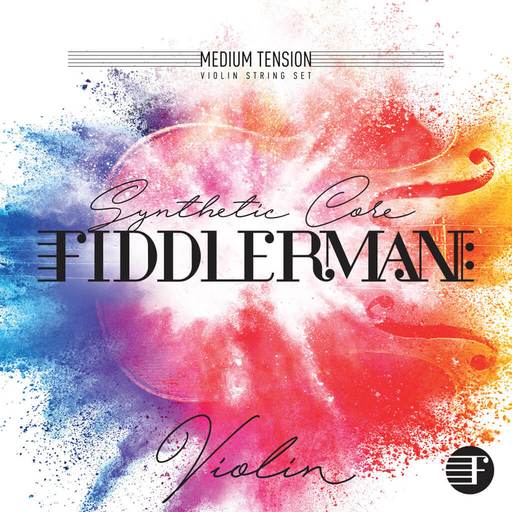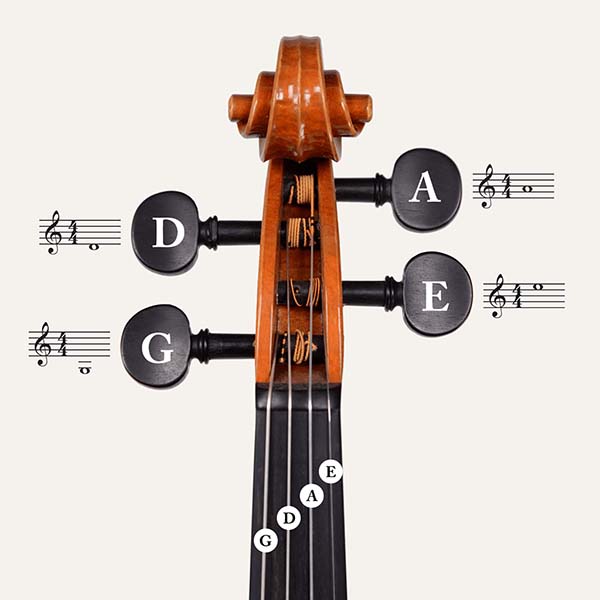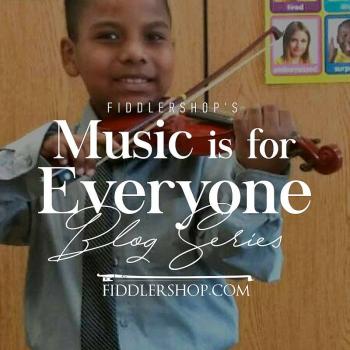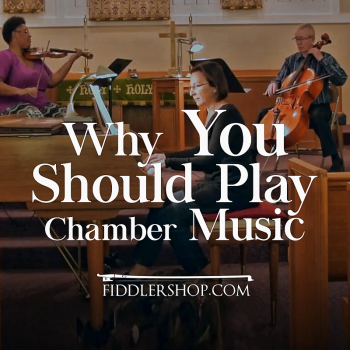Violin, viola, cello, and double bass - these are the instruments in the string family.
In almost every genre of music, you'll find one of these instruments behind the scenes or at the forefront. They are admired for being the closest to resembling the human voice. They each have a long and active history in many styles of music, from Baroque to Bluegrass and Heavy Metal to Hip Hop. Each one has its own long list of compositions devoted to it.
It's no wonder so many people usually jot down "learn to play the violin (et al.)" on their to-do lists.
If you're on the fence with your decision to learn a string instrument, I'll list four reasons below on why you should finally take the dive.
1. It's Never Too Late to Start
Let me go ahead and dispel one common misconception. While instruments like the violin are difficult to play, it's never too late to begin learning it!
Many people of all ages, cultures, and various circumstances have picked up a string instrument. Many of them have gone on to achieve wonderful things on them. Just read our Music is for Everyoneinterviews on our blog.
And every day, right here at the Fiddlershop, we sell instruments to people of all ages and levels.
2. Learn a New Language
Ok, we can agree it's not too late. But some might still argue, "I'll never be able to play like some of the really great cellists or violists out there on the concert stage, so what's the point?"
Because music is a universal language.
With spoken word, we all have our own unique voice. From the pitch to the timbre, volume, the words we use, and other characteristics, language varies from person-to-person.
Music is the same, except it's a universal language.
When you view music as a tool for communication, it's no longer about who plays better. It's about how you as an individual will learn to express yourself through the wonder of it. In what way will music replace words in your life and help you to express a memory, an emotion, a desire, or a need? How will you imprint your individuality on the language of music?
Music is an opportunity for you to be apart of the development of a powerful and forever-evolving way of speaking, thinking, and understanding the world around you.
If you're still not convinced of the awesomeness of learning to play a musical instrument, let's look at the benefits from a more practical standpoint.
3. Physical
Both children and adults stand to improve their fine motor skills when learning a string instrument.
For children, it helps to develop motor functions.
For adults, it can awaken and strengthen them, bringing new life to neglected areas of the body.
For both children and adults, violin and viola, as well as the larger instruments, teach awareness of one's body and posture. It also forces one to find ease within themselves to make some rather uncomfortable positions as tension-free as possible. Furthermore, they increase dexterity, coordination, and strength for people with weaker joints.
In addition, I imagine hauling a large cello and double bass around keeps the owners in good shape.
4. Mental
Whenever humans begin to learn anything new, our brains begin to create a map of the new activity in our minds. This keeps our brains exercised; it improves memory function, critical-thinking, and our problem-solving skills.
For string instruments, there are no frets. That means the very act of trying to play an accurate note involves your brain learning and memorizing the sound and position of a new pitch.
On top of that, students have to learn the correct position, speed, and pressure to apply to the bow to produce a desirable sound across the strings. This requires more than just memory, but brainstorming and experimentation because the bow can produce quite a few different types of sounds -- some pleasant and others a little surprising.
Thus, your brain is getting an optimal workout trying to confront the issues presented in both the left and right hands individually. And, in-the-end, has to bring all of it together to create a balanced, full, and pleasant tone.
Challenging, yes, but oh-so-worth-it! After a few months, you should be able to play a few simple tunes. After a year or more, you're already laying much of the groundwork needed to communicate effectively through your violin, viola, cello, or double bass.





